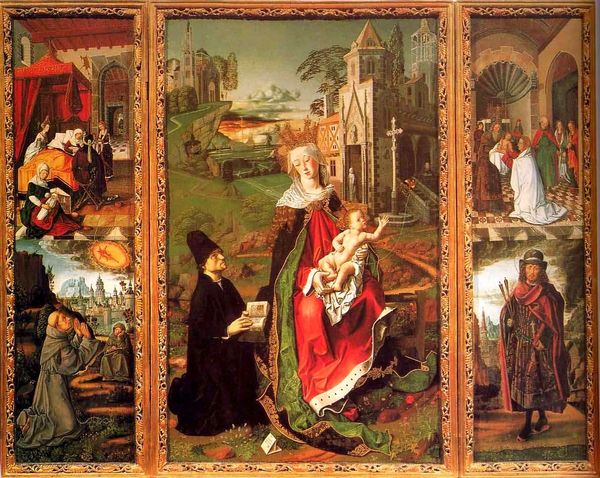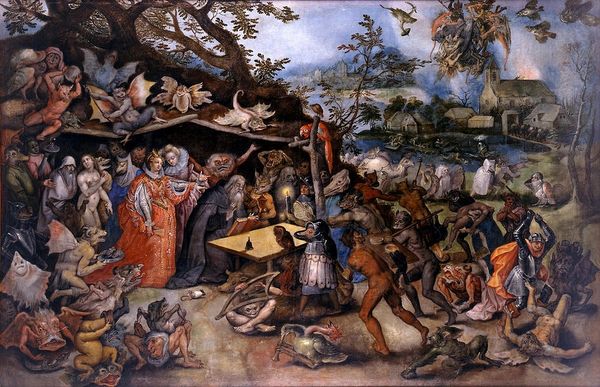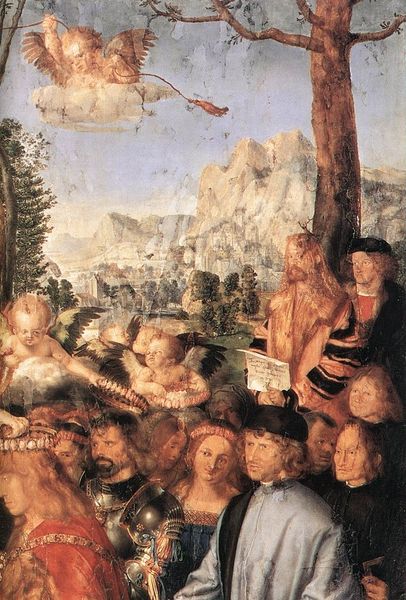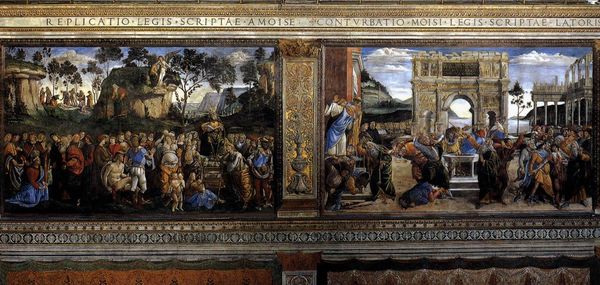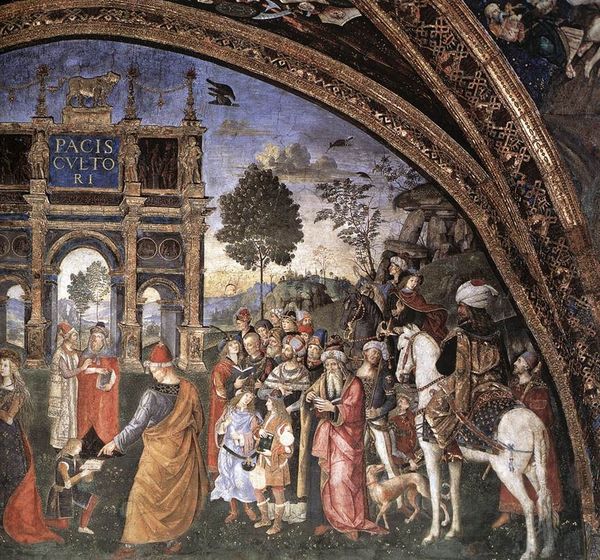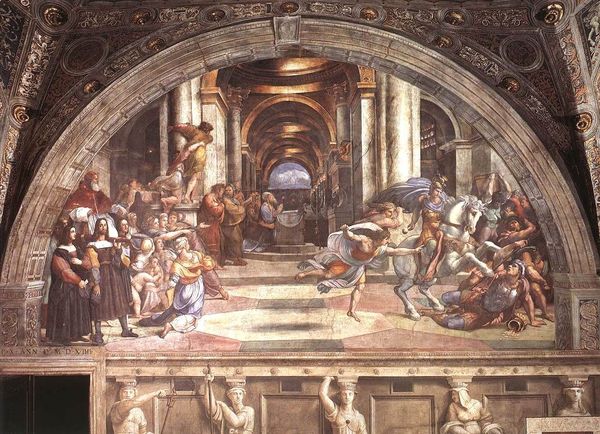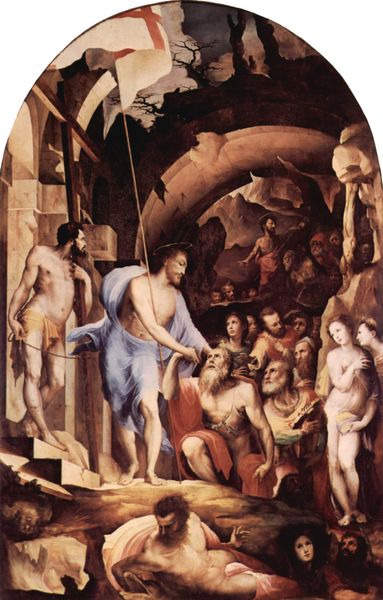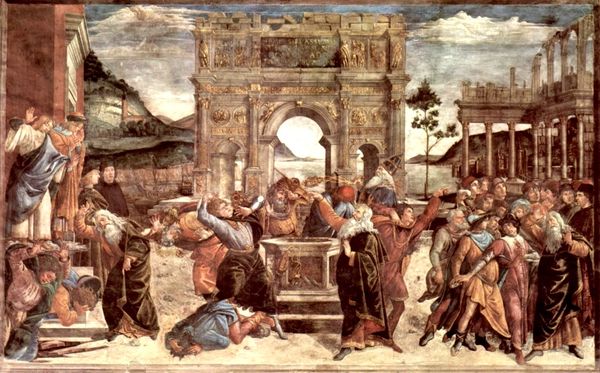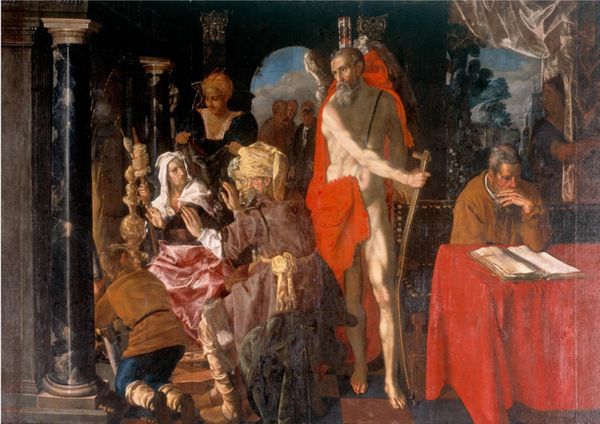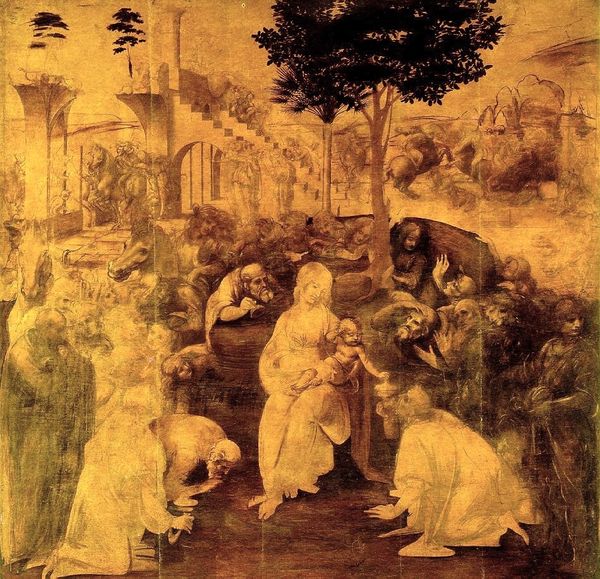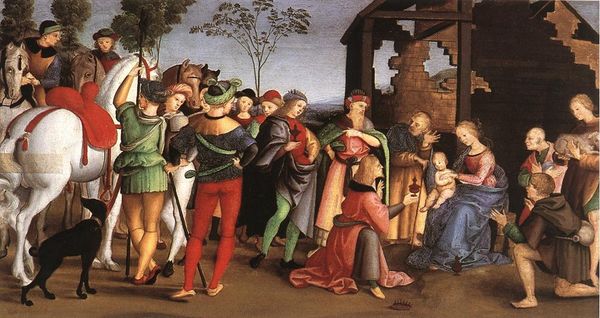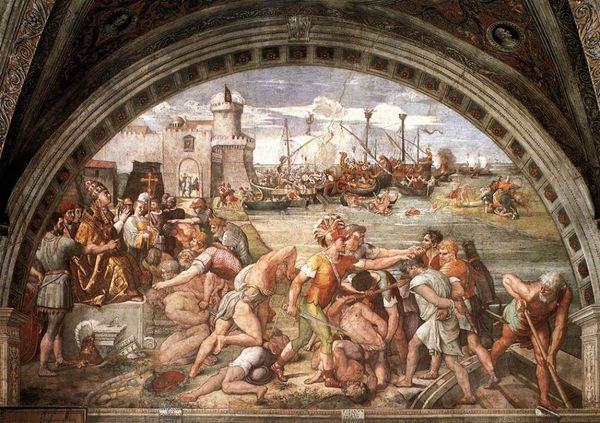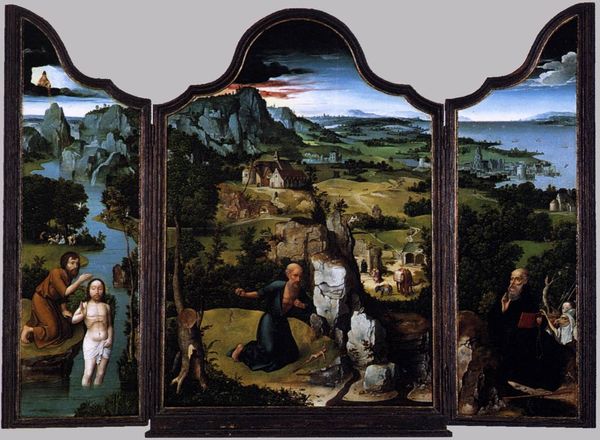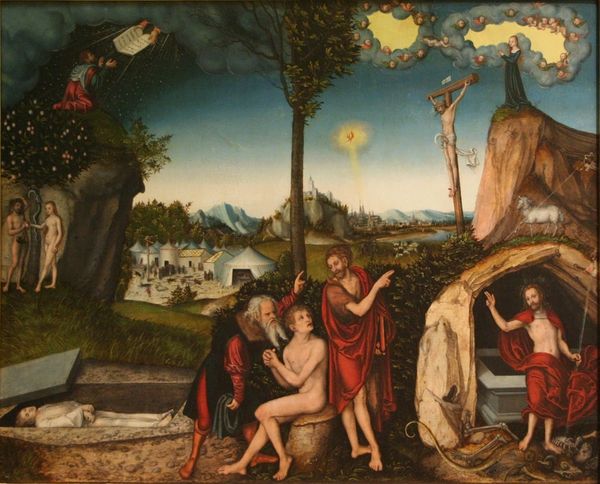
painting, oil-paint
#
portrait
#
venetian-painting
#
narrative-art
#
painting
#
oil-paint
#
landscape
#
painted
#
figuration
#
oil painting
#
christianity
#
genre-painting
#
history-painting
#
academic-art
#
italian-renaissance
#
virgin-mary
#
miniature
#
christ
Dimensions: 126 x 92 cm
Copyright: Public domain
Editor: This is "Holy Conversation" painted around 1505 by Vittore Carpaccio, using oil paint. The scene feels quite theatrical to me, almost like a stage play with a beautifully painted backdrop. What do you make of this rather constructed scene? Curator: It's precisely that constructed nature that intrigues me. The 'Sacra Conversazione,' or Holy Conversation, was a popular trope. The painting is designed to reflect the wealthy and powerful commissioners desire to be viewed within the correct theological and civic framework. Editor: Civic framework? Curator: Exactly. The figures aren't just placed there for devotion. Carpaccio was very popular in Venice, and Venice wanted to view itself as this ideal Christian Republic. These paintings were about more than just piety; they were asserting social order, Venice as a center of piety but importantly wealth and power, through its important mercantile activity in the eastern Mediterranean. Editor: So the details in the landscape might actually be symbols related to Venice? Curator: Absolutely. Consider the bridge and fortress – elements of Venice's infrastructure but, more pointedly, demonstrations of its control over trade routes. How does that knowledge change your initial 'stage play' reading? Editor: It becomes less theatrical and more like propaganda, although, beautiful propaganda. I’m looking at it with very different eyes now. Curator: Exactly. Carpaccio delivers this message via a carefully chosen visual vocabulary which had significance at that time to that audience and which tells a much larger and richer story about that place in that time. That’s why the painting speaks so strongly across the centuries.
Comments
No comments
Be the first to comment and join the conversation on the ultimate creative platform.
